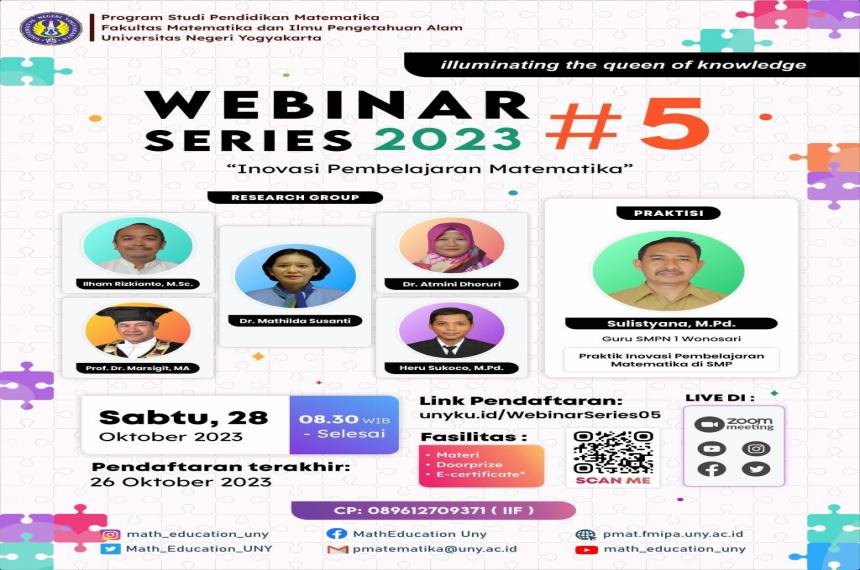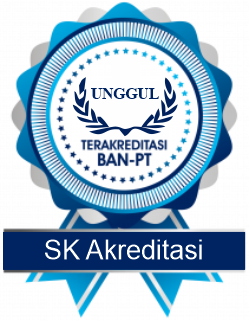Webinar series#5

Indonesia faces challenges in having qualified mathematics teachers. Therefore, innovations are needed to overcome this limitation, including teacher training and the development of effective teaching methods. Increasing students' interest and motivation in mathematics is an important goal in mathematics learning innovation. To facilitate this, the Mathematics Education Study Program of Yogyakarta State University (UNY) held webinar series #5 with the theme “Mathematics Learning Innovation”.
Saturday, October 28, 2023, a webinar was held through the zoom platform and YouTube live streaming. The webinar was opened by Endah Retnowati, Ph.D. as study program coordinator in S-1 Mathematics Education UNY. Webinar series #5 was moderated by Dr. Atmini Dhoruri who is a member of the Research Group team at the UNY Mathematics Education Department. There were two topics discussed in webinar#5, namely “Mathematics Learning Innovation Practices in Junior High School” and “problem-based learning models to train 21st century competencies (MPBL-K21) that focus on improving critical thinking and problem solving skills”. The first topic was discussed by Sulistyana, M.Pd. He is a teacher of SMP 1 Wonosari and chairman of MGMP of mathematics in Gunung Kidul Regency. The second topic was discussed by Dr. Mathilda Susanti, M.Si. She is a lecturer of Mathematics Education Department of UNY and one of the Research Group team.
Mr. Sulistyana, M.Pd. said that innovation in mathematics learning is important in improving understanding, interest and achievement. Teachers can utilize the features of the Geogebra application, implement cooperative learning processes and provide examples of mathematical problems in accordance with real life. Ice breaking is done to break the ice. The activity is in the form of answering questions in quizizzes related to the youth pledge, the committee took the initiative in the questions there will be several questions related to youth. The three best participants will get attractive door prizes.
Dr. Mathilda Susanti, M.Si. said that the problem-based learning model can help create a learning environment based on the constructivism approach and help students to be active in the learning process through group learning activities and through the problems given. The role of a teacher in problem-based learning is as a facilitator by providing scaffolding when students experience obstacles.
Complementing the webinar agenda, a question and answer session was also provided. The fastest participant questions will be managed by the committee to be submitted to the two speakers, the enthusiasm of the participants was unstoppable to ask, but only five questioners were taken due to the limited time in the question and answer session. Before the event ended, the moderator conveyed his conclusion that in the first material the majority of students viewed that math was difficult, difficult to concentrate, often playing cellphones so that the solution used was to integrate cooperative learning, geogebra and YouTube. Then in the second material the problem-based learning model in the 21st century which focuses on improving critical thinking and problem solving skills. 21st century learning is not only oriented towards mastery of knowledge, but integrates knowledge, skills, attitudes of mastery of technology and communication.
(MA)
Copyright © 2026,



